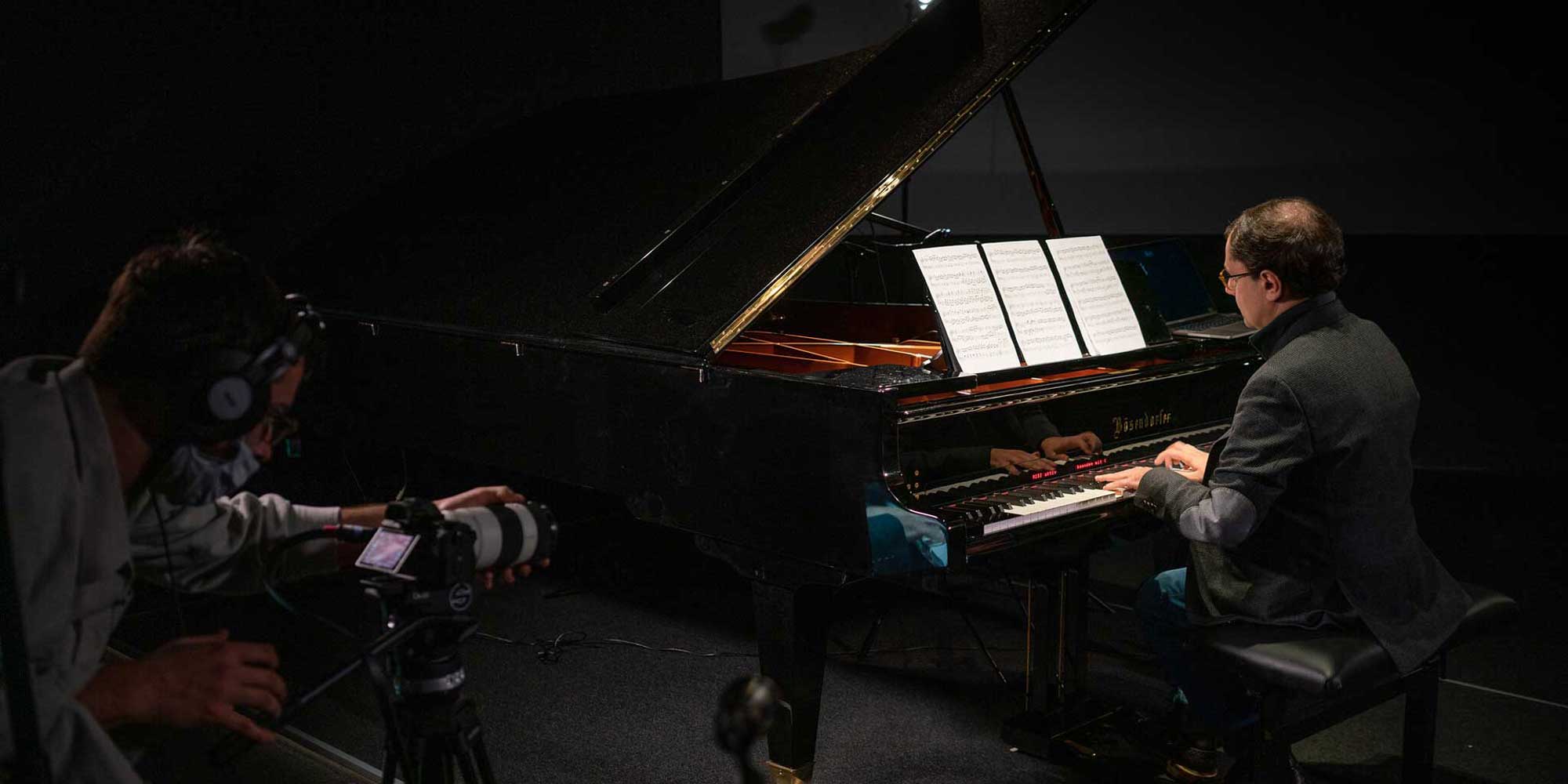His research reflects the creative interaction between humans and artificially intelligent systems. It investigates the creative potential of algorithms and the possibilities for interaction, sublimation and personalisation in constructive collaboration with the human user. This year, Ali Nikrang was once again involved in the AIxMusic Festival as part of the Ars Electronica Festival 2020 with numerous contributions and together with his projects he addresses the controversially discussed hype surrounding artificial intelligence, creativity and music:
“It wouldn’t be the first time in the history of music that a technology has helped to expand our creative possibilities. The piano itself was an 18th century invention and even the first flute was an innovation from a technological point of view. Before its time, singing was the only way to express music” – Ali Nikrang, Key Researcher & Artist, Ars Electronica Futurelab
Because last year’s AIxMusic Festival, which took place for the first time, proved to be a great success, Ars Electronica organized the second edition this year as part of the STARTS initiative in cooperation with the European Commission. This year’s AIxMusic Festival focused on providing a deep insight into the latest research findings and artistic practices developed in connection with artificial intelligence, with special emphasis on their potential for facilitating networked collaboration between musicians from a distance.
Back to Ali Nikrang and his projects: Mahler Unfinished 2019 was just one of his many experiments with AI and music and a real challenge for the composition AI MuseNet. As early as 2020, Ali Nikrang presented his own AI system Ricercar, which, trained by 25,000 pieces of music, is able to compose music that can hardly be distinguished from a human composition.
How Machines See Music
Ali Nikrang’s installation How Machines See Music at the LIT Open Innovation Center, which was part of the Ars Electronica Festival 2020, illustrated the functioning of the “Deep Neural Network” Ricercar by visualizing the activation of neurons on an existing piece of music. The result was a novel form of visual representation of music that vividly expressed the higher-level structures of a work.
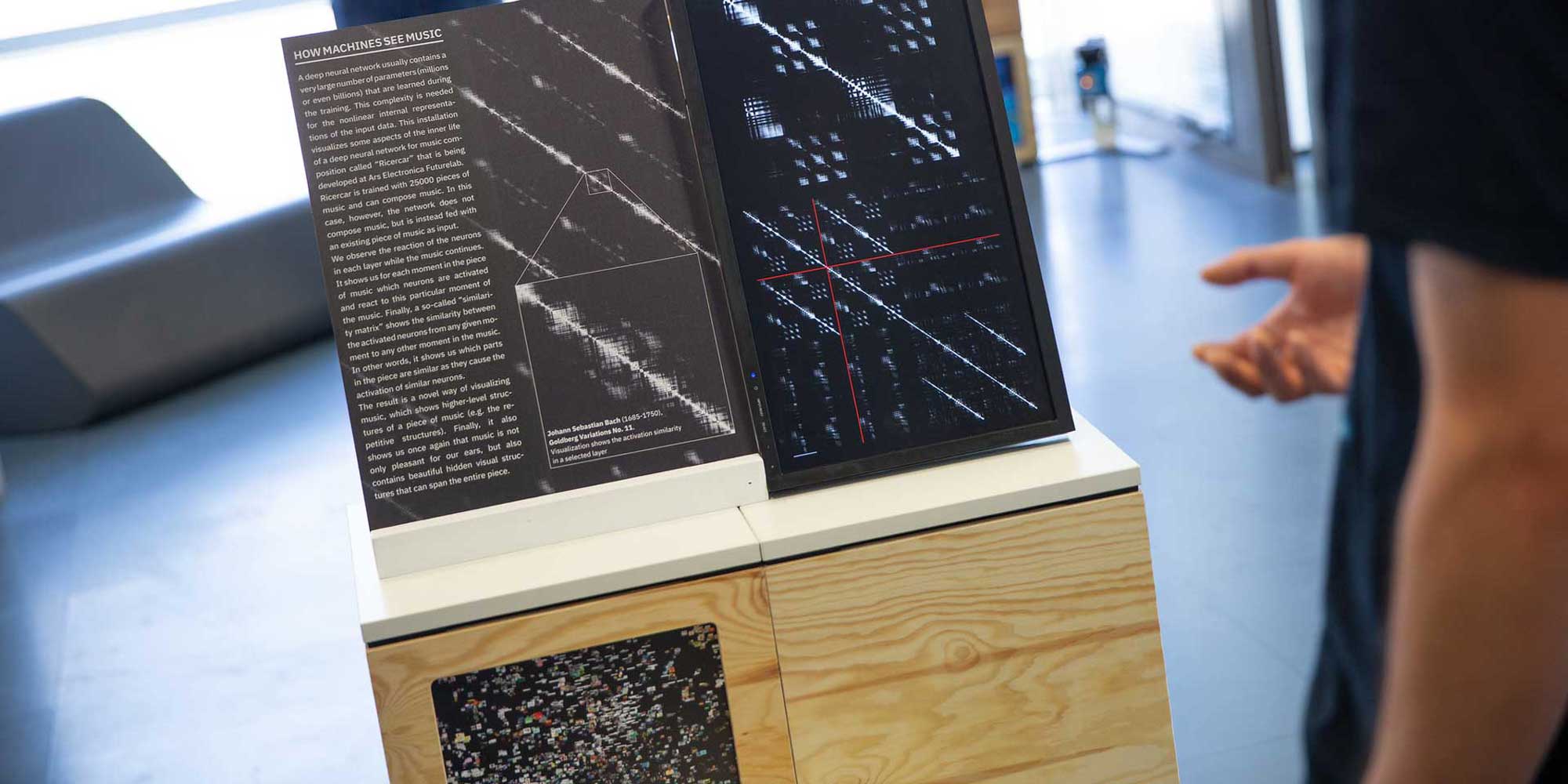

Somnium
For the realisation of Somnium, the artistic team consisting of Ali Nikrang (AT), Martin Honzik (AT) and Alexander Wöran (AT) used the AI Ricercar to observe the inspiring environment at the TNF Tower of the Johannes Kepler University in Linz while “interpreting” the European Anthem that is originally composed by Beethoven, the International, the National Anthem of the Republic of Austria and the Anthem of Upper Austria, transforming the moment into a bittersweet reflection on the current situation of democracy and the state of our planet in general.
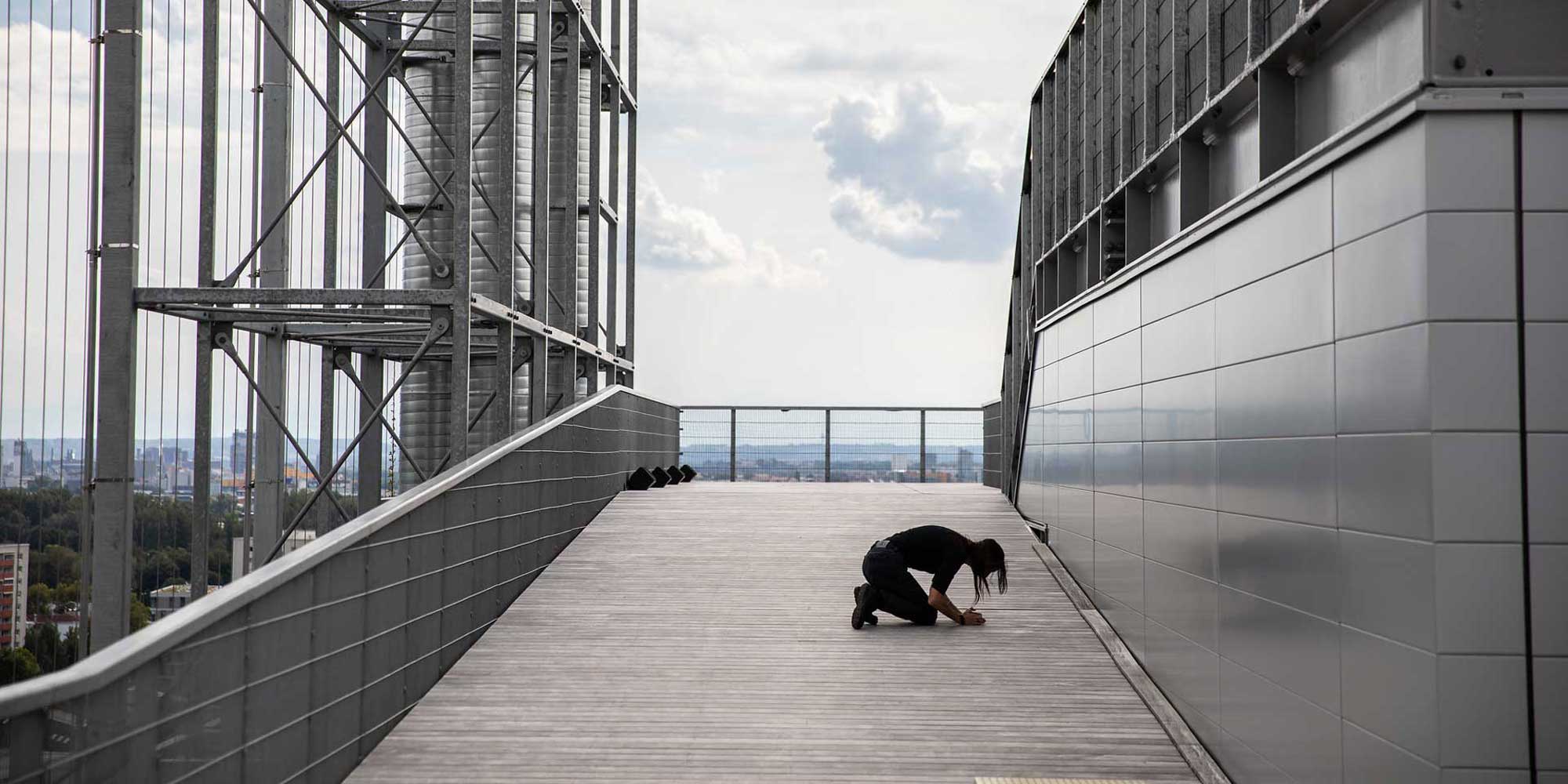
The Big AI-Jam – AI meets musical diversity
With The Big AI-Jam – AI meets musical diversity, another AI & Music project by Ali Nikrang formed the conclusion of the Big Concert Night 2020. Nine musicians from the extensive international network of festival partners were invited to create their individual musical response, interpretation or improvisation to Ricercar’s AI compositions and to live-perform their musical contribution.
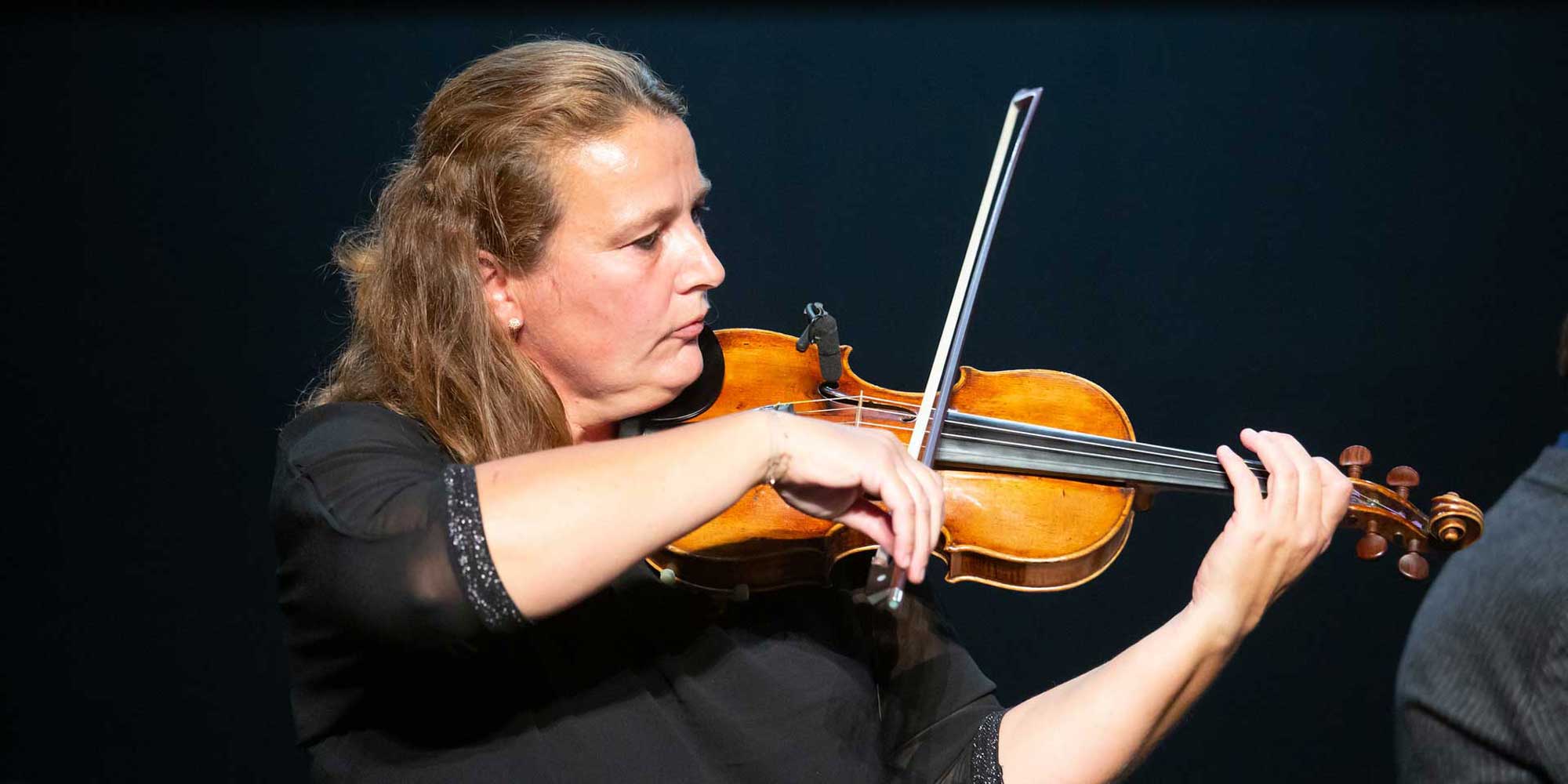
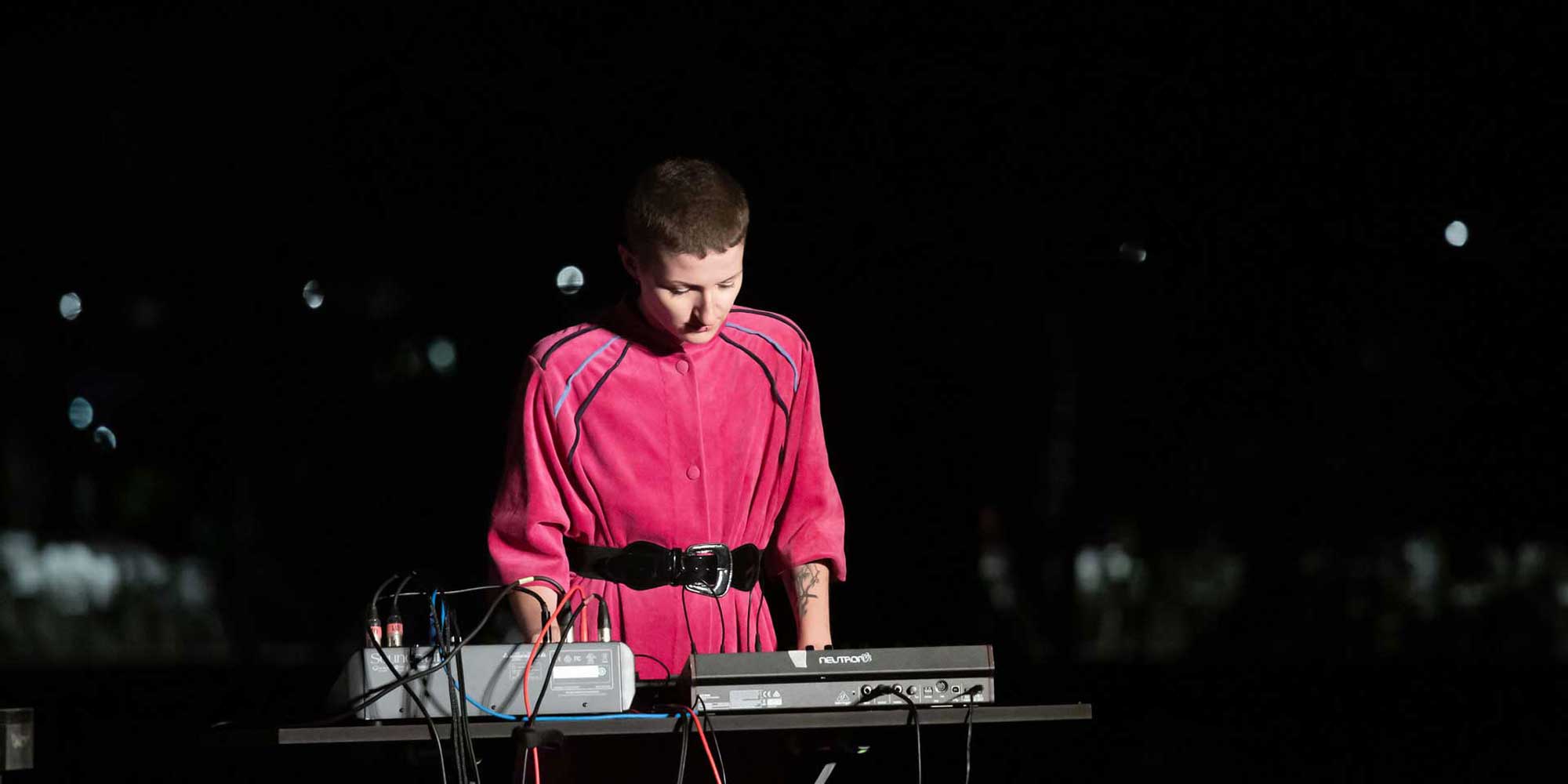
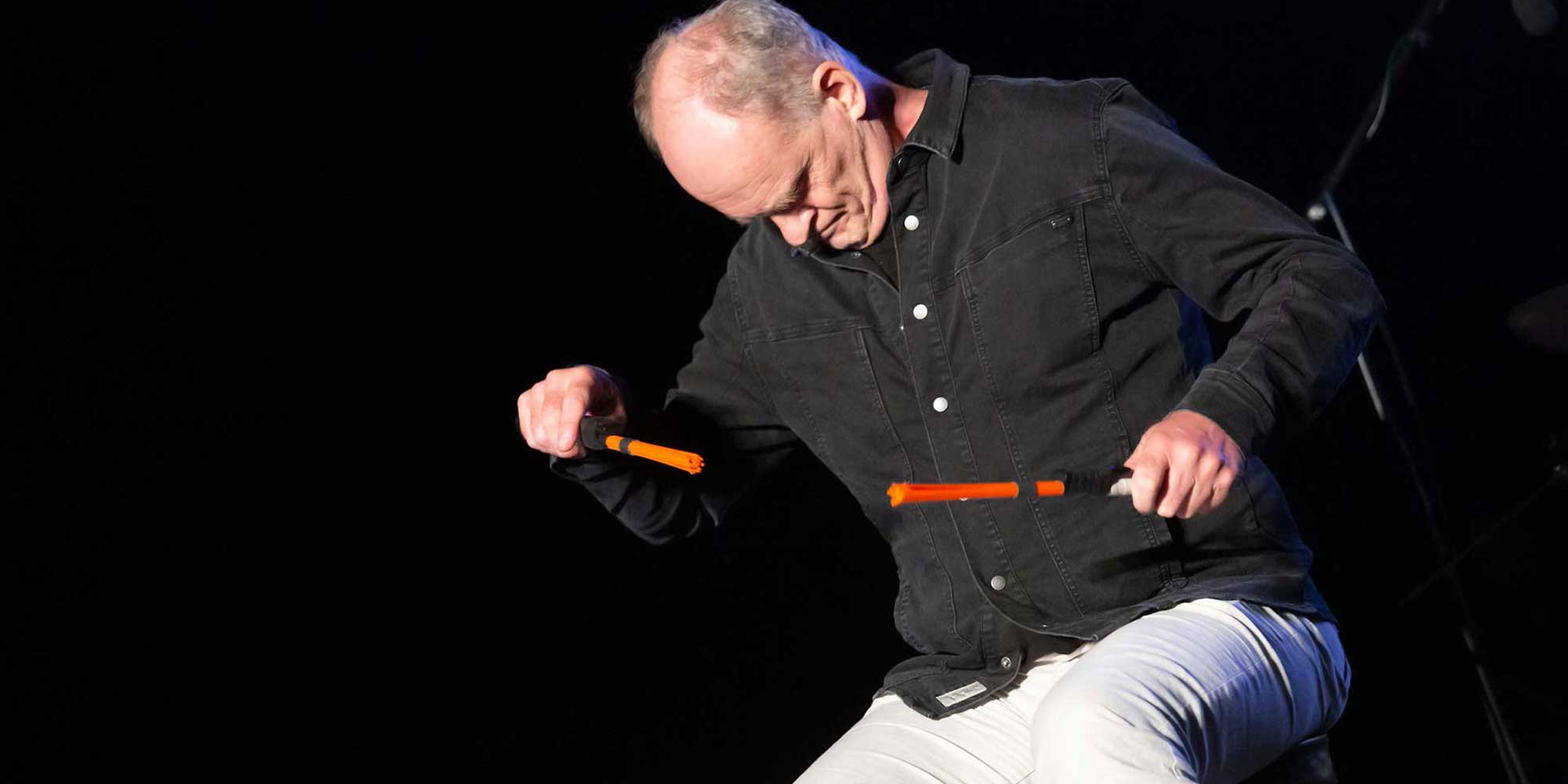
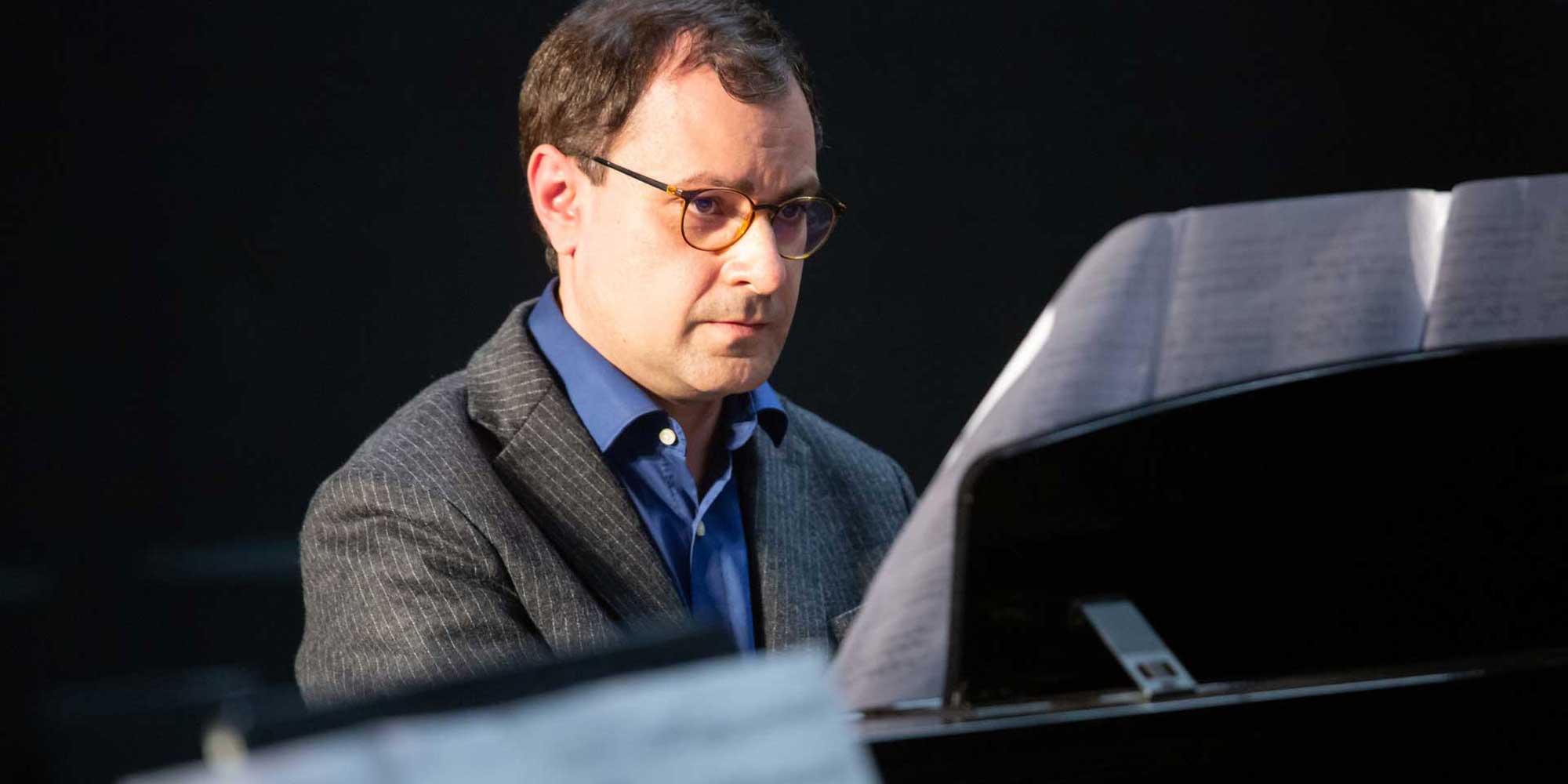
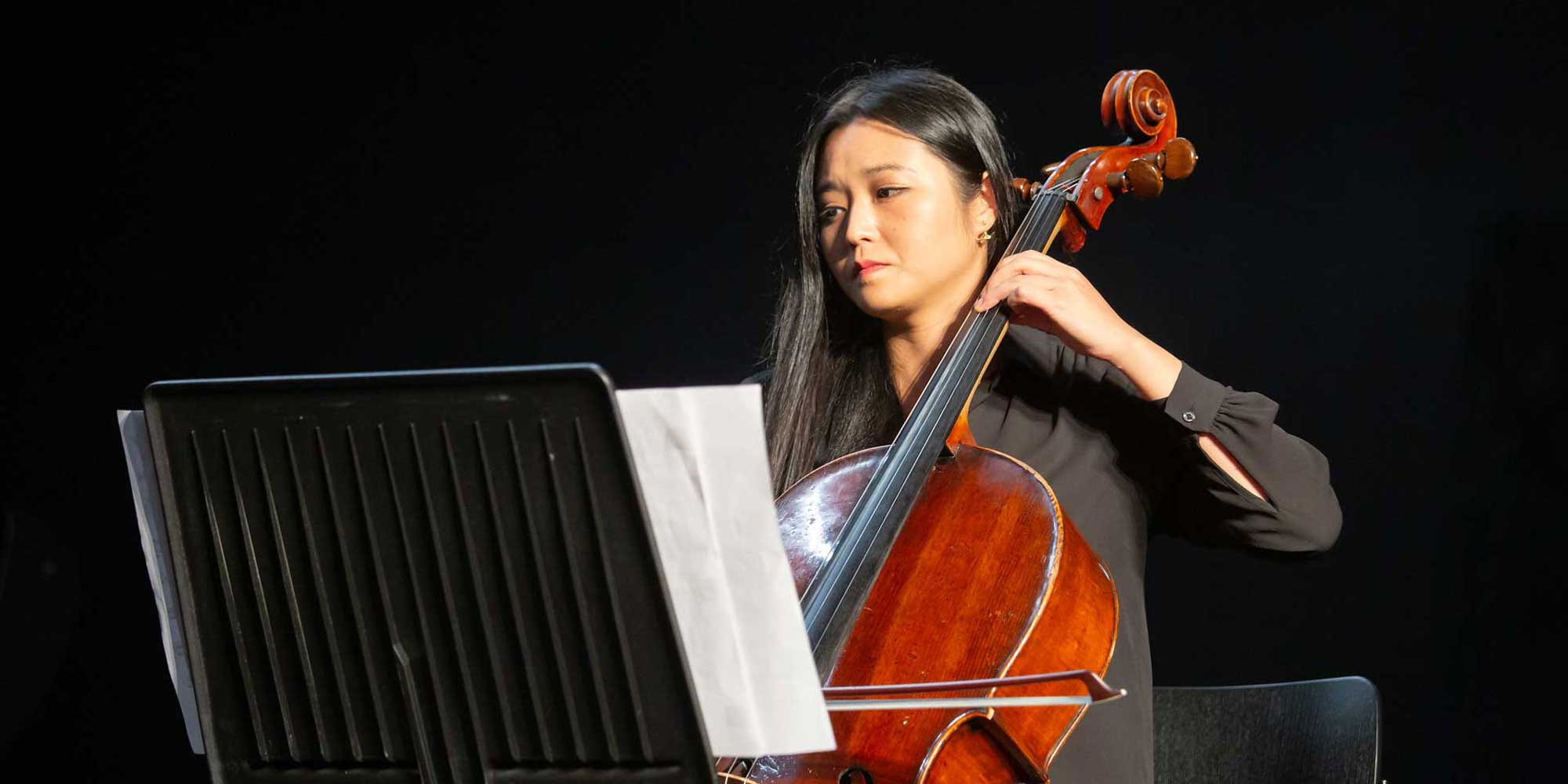
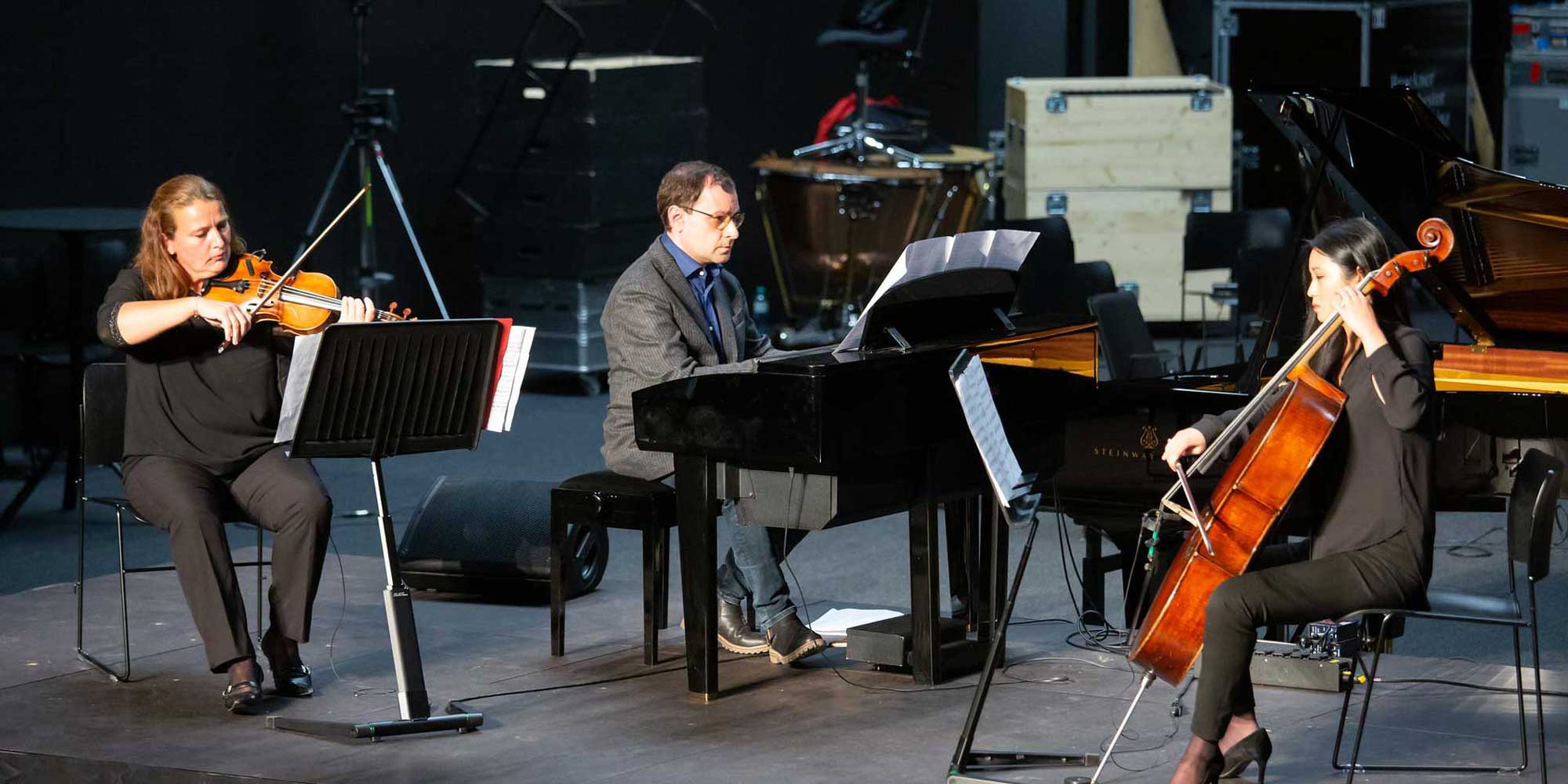
Running Off the Senses
The strange feeling of being emotionally manipulated by natural-sounding and emotional, but AI-generated music was the topic of Running Off the Senses, a performance with Yishu Jiang (cello), Daniela Mülleder (violin) and Ali Nikrang (piano), which focused on the counterpoint between music generated by AI and music created by humans.
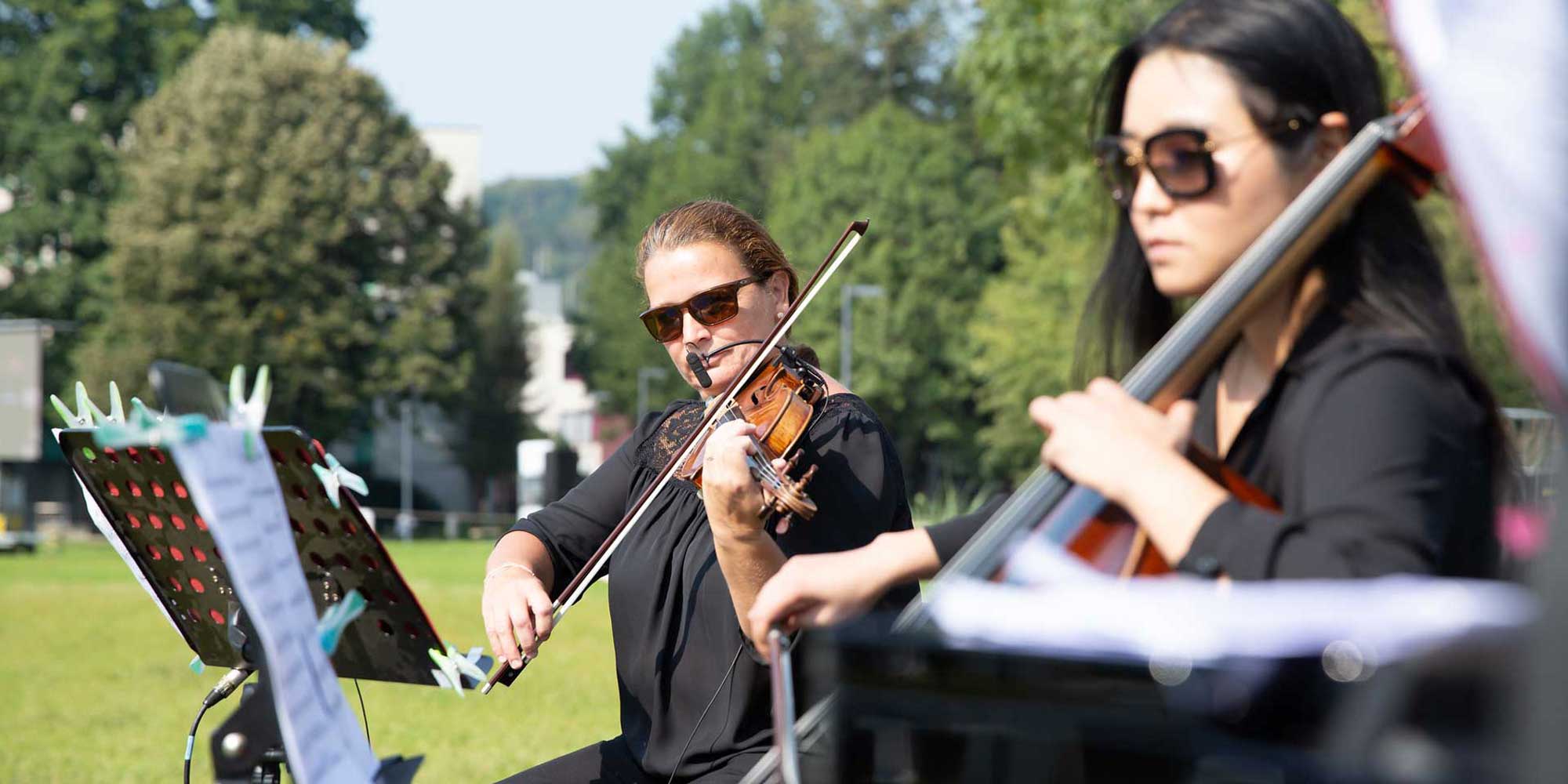
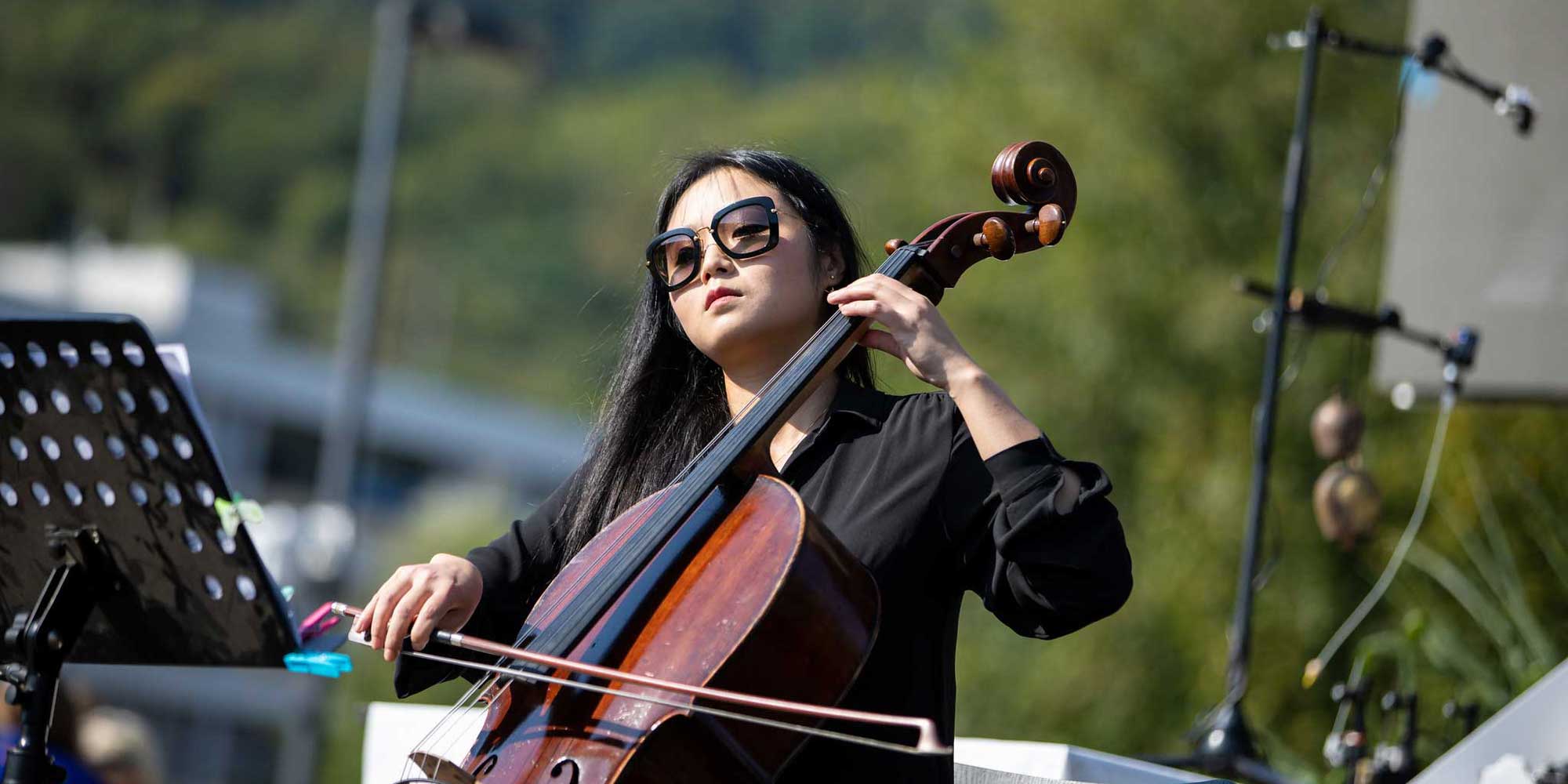
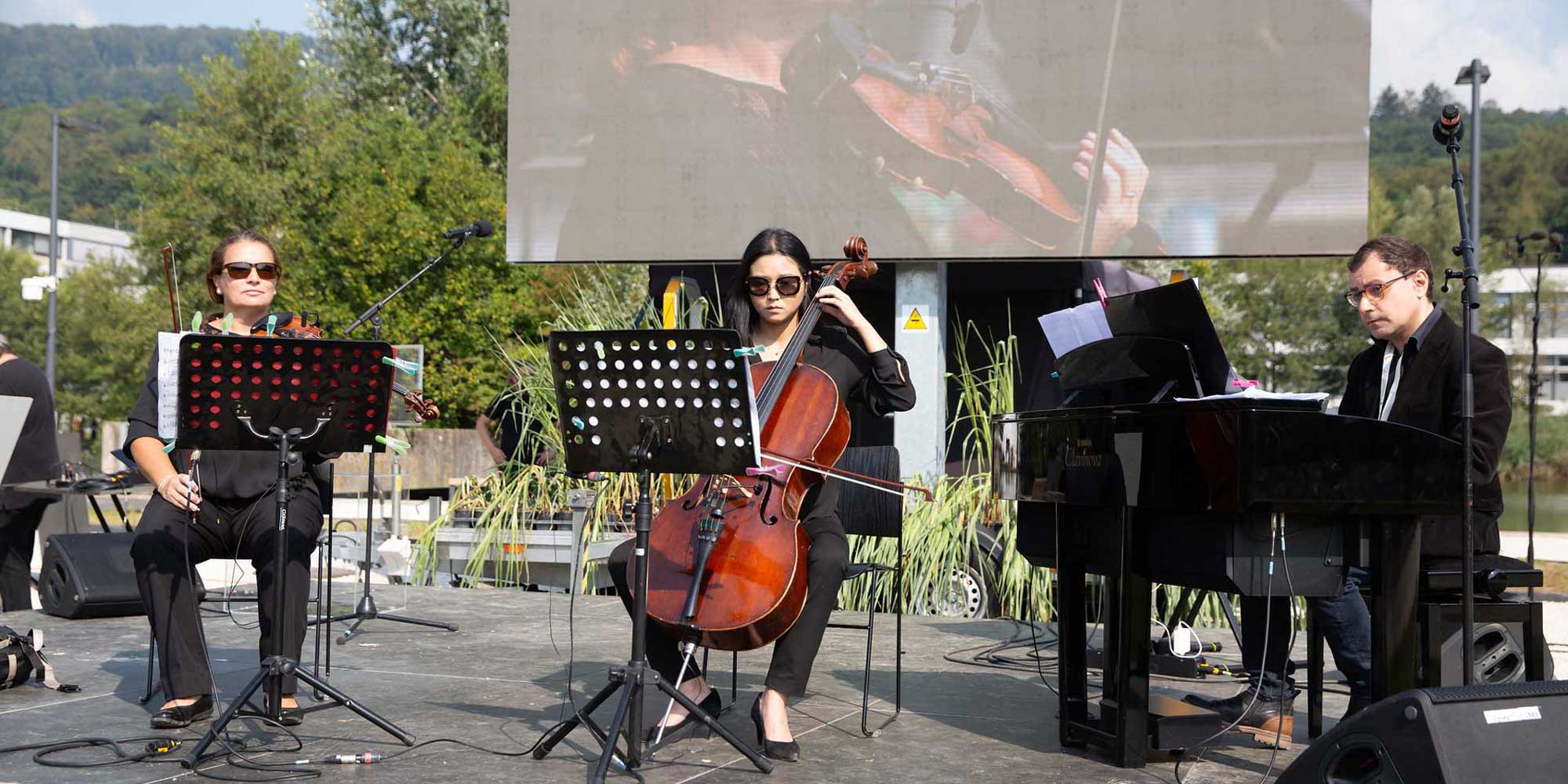
Talks and discussions
Ali Nikrang also contributed with his knowledge and experience to numerous talks and discussions about AI & Music. Together with The Grid (US/EU), Christine Payne (OpenAI, US), Lamtharn (Hanoi) Hantrakul (GoogleAI, US) and Clara Blume (AT/US, OpenAustria), he addressed questions such as “Can artificial intelligence be creative?” in the panel Artificial Creativity or Enhanced Humanity, an S+T+ARTS flagship event organised by Ars Electronica and the European Commission.
Under the provocative title Artificial Stupidity, he discussed the disputable media hype surrounding artificial intelligence in music together with Moisés Horta Valenzuela (MX/US), Artemi-Maria Gioti (GR) and Alex Braga (IT), moderated by the Berlin-based artist Portrait XO (US).
The conclusion?
“What is best in music is not to be found in the notes.” – Gustav Mahler
What music is really about is the sound in-between the notes. The future of AI-based music composition can therefore only be created in collaboration with humans, because there is no art without human intention. Art is created solely through purpose and active participation.
Every AI system for music composition develops its own view on the data based on statistical patterns by systematically learning to compose music. But by using innovative systems such as artificial creative technologies, art can and will also develop changed perspectives and use them to create something completely new.
That really sounds interesting to you? Learn more about Ali Nikrang and his approach to rhythms and algorithms on the Ars Electronica Blog and about his research on the creative potential of artificial intelligence on the Ars Electronica Futurelab’s new Website!
